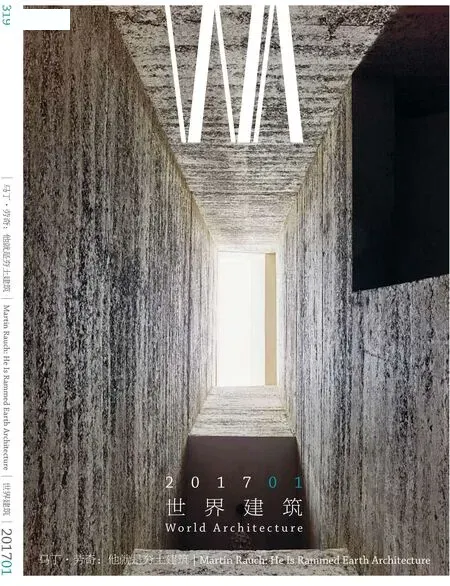奥米龙跨国界项目和休闲空间,克劳斯,奥地利
建筑设计:安娜·赫里格尔,马丁·劳奇
泥作系列
Mud Works, 2015-2016
奥米龙跨国界项目和休闲空间,克劳斯,奥地利
建筑设计:安娜·赫里格尔,马丁·劳奇
在著名的奥米龙公司的新办公楼中,我们设计并建造了几处娱乐室及休闲空间。这些空间属于一个名为“跨国界”的项目——致力于帮助全球南部第三世界国家的儿童和教育的、非盈利组织。一个洞穴式的巨型构筑物围合出一个安静而有氛围的休息区,还有一艘明亮、轻盈的“飞艇”,欢迎人们进去聊天或休闲讨论。一个摆放了很多靠枕的洞穴是休憩和停留的绝佳场所。巨型构筑物使用加纳Zaburi技术建造,而“飞艇”则采用木结构框架,外覆有手工编制的半透明丝绸表皮。这个“热门场所”代表了一种全新的企业和员工文化。在建筑的其他区域,我们又以休闲壁龛的形式,创造了诸多类似的补充性空间。
这些空间也与发展合作的主题相关——并参照它们所代表的国家的设计而创作(如“阿富汗”“厄瓜多尔”“墨西哥”“坦桑尼亚”)。设计概念中对土壤和木材这类天然和本地材料的使用与在欧洲、孟加拉国、印度或是世界其他地方推行的手工艺及公平贸易运动一样重要。□ (黄华青 译)
编注/Editor's Note
i Zabur是一种来自于也门北部鲜为人知的技术。和人们已知的垛泥技术不同,Zabur技术使用不含有秸秆的土/This unknown technique "Zabur" is an old technique from the North of Yemen. "Cob" contains straw, Zabur not.
项目信息/Credits and Data
建筑设计/Architects: 安娜·赫里格尔,马丁·劳奇/Anna Heringer (Laufen, Germany), Martin Rauch (Schlins, Austria)
客户/Client: 奥米龙电子工业所/Omicron Electronics (Klaus, Austria)
项目经理/Project Manager: Martin Rauch
场地管理/Site Manager: Hubert Stephan
结构工程/Structural Engineer: gbd (Dornbirn, Austria)
建筑面积/Floor Area: 220m²
夯土/Rammed Earth: 80m², 33t
建造周期/Construction Phase: 2014-2015
摄影/Photos: Pauline Sémon
线图/Plans: Lehm Ton Erde Baukunst GmbH

1 生土构筑物的外景/Exterior view of the earth monolith
In the new office Building of the well-known company Omicron, several recreational rooms and relaxing spaces were designed and installed. These spaces were created under the programmatic name "Crossing Border" - representing an in-house non-profit association for children and education in southern, third world countries. A cave-like monolithic structure offers a quiet and atmospheric retreat; a bright and much lighter zeppelin invites people to chat and allows for informal discussions. A niche with lots of pillows provides an attractive place to rest and pause. The monolithic structure was built up in Ghanaian Zaburitechnique. The zeppelin on the other hand has a wooden skeleton frame, which is then covered in a translucent skin of non-violent, handwoven silk. This "hot spot", created for a new and different business and employee culture, finds supplementary situations spread out through the rest of the building in forms of recreational niches. These spaces are also related to the theme of development cooperation, and were created in the design of the countries they represent (e.g. Afghanistan, Ecuador, Mexico and Tanzania). The use of natural and local materials in this concept such as loam and wood was just as important as the promotion of crafts and fair trade in Europe, Bangladesh, India or the rest of the world.□
Omicron Crossing Border & Relaxing Spaces, Klaus, Austria, 2015
Architects: Anna Heringer, Martin Rauch

2 剖面/Section

3 供休憩的座位/Seating dent

4 生土构筑物的内景/Interior view of the earth monolith

